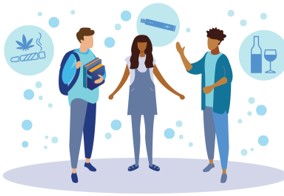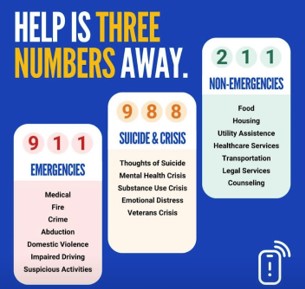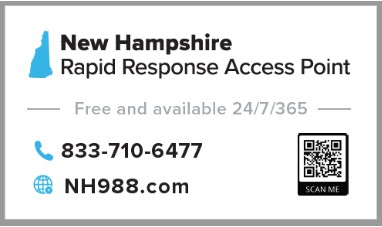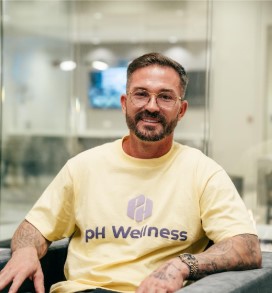Preventing and Addressing Substance Misuse: A Guide for Students and Families

Students and Families
Substance misuse, including the use of drugs, alcohol, and vaping, is a serious issue that can affect students’ health, academic success, and future opportunities. Whether you’re a student or a parent, knowing how to prevent and address substance use is important for staying safe and making healthy choices.
Tony Hoffman
FEATURED SPEAKER - March 2025
Guest Speaker to Present to Spaulding High School, Bud Carlson Academy, and the Rochester Middle School’s 8th grade
Tony Hoffman is a renowned speaker for
organizations and schools. His message revolves around mental health as one of the roots of substance misuse, and is based on lived experience. Tony’s message has been heard around the world, and encourages young people to take ownership of their life and focus on the path to success, even when faced with hardship. This dynamic presentation will set the groundwork for future efforts; in which students will apply their learning and further their understanding of mental health and substance prevention. Tony Hoffman
How Students Can Stay Substance-Free
Know the Risks – Drugs and alcohol can harm your brain, affect your mood, and make it harder to focus on school or work. Understanding the impact can help you make informed choices about what you put into your body.
Take care of yourself - Substances are often used as a way to deal with difficult feelings or thoughts. Reach out to trusted adults or peers if you are struggling with something.
Choose Positive Activities – Sports, clubs, music, and volunteering keep you busy and surrounded by positive influences.
Don’t be Afraid to Say No – If someone offers you drugs or alcohol, be ready with a simple response like, “No thanks, I’m good.” There are plenty of people who choose not to use substances; you are not the only one.
Surround Yourself with Supportive Friends – Choose friends who respect your choices and make positive ones as well.

What to Do if You Need Help
If you or someone you care about is struggling with substance use, don’t be afraid to ask for help. Talk to a trusted adult, such as a parent, teacher, counselor, or coach. There are also support programs and professionals who can help students and families find solutions together.

The New Hampshire Rapid Response Access Point provides the support you want in your time of need. If you or someone you care about is experiencing a mental health or substance use crisis, you can call and speak to our trained and caring staff.
We’re here for you 24 hours a day, 7 days a week – including holidays. Contact us by phone, text or chat to access vital support services when you need them most.


School District Supports
Student Support Staff
Spaulding High School
Leah Anderson | |||
anderson.l@sau54.org | |||
Jonathan Dube, Social Worker | |||
dube.j@sau54.org | |||
Lisa Gauthier, Social Worker | |||
gauthier.l@sau54.org | |||
Karen McDermott, Counselor | |||
mcdermott.k@sau54.org | |||
Katie Newbegin, Counselor | |||
newbegin.k@sau54.org | |||
Ariana Ragonese, Counselor | |||
ragonese.a@sau54.org | |||
Erin Reinhard, Counselor | |||
reinhard.e@sau54.org | |||
Cheryl Stifter, Counselor | |||
stifter.c@sau54.org | |||
Jen York, Special Education Counselor | |||
york.j@sau54.org |
Bud Carlson Academy
Kelly Thomas, Counselor | ||
thomas.k@sau54.org |
Rochester Middle School
Sarah Carri, Counselor | |
carri.s@sau54.org | |
Danielle Ceppetelli, Special Education Counselor | |
ceppetelli.d@sau54.org | |
Nicole Dale-Hogan, Student Assistance Program | |
dalehogan.n@sau54.org | |
Melissa Gamirov, Counselor | |
gamirov.m@sau54.org | |
Lilly Laganiere, Social Worker | |
laganiere.l@sau54.org | |
Sandi McPadden, Restorative Counselor | |
purcell.s@sau54.org | |
Michael Tritter, Counselor | |
tritter.m@sau54.org |
How Families Can Help
Keep Open Communication – Talk with your child about substance use in a non-judgmental way. Let them know they can come to you with questions or concerns.
Set Clear Expectations – Establish family rules about drugs and alcohol and explain the reasons behind them.
Be a Role Model – Children learn from their parents. Show responsible behavior and healthy ways to cope with stress.
Recognize Warning Signs – Changes in behavior, mood swings, declining grades, or loss of interest in activities could signal a problem. If you notice these, start a conversation and offer support.
By working as a team, students and families can create a safe and supportive environment that encourages healthy choices and bright futures
External Resources for Students and Families
Alternative Peer Groups | Creating Connections NH
National Helpline for Mental Health, Drug, Alcohol Issues | SAMHSA
5 Conversations Starters to Talk About Drugs with Your Kids PDF
